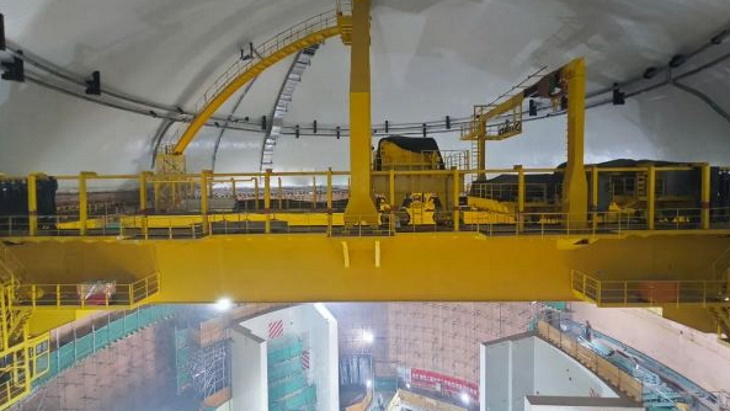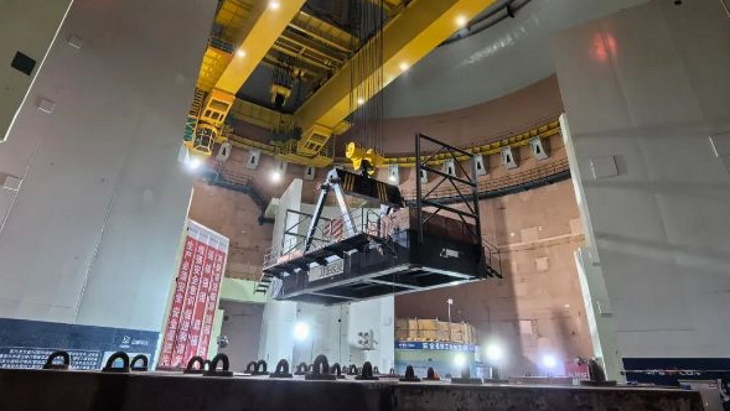
The crane is located under the containment dome on a trolley that moves 360° on a circular rail over the reactor shaft, enabling transport operations anywhere in the central hall of the reactor building. It can be used for installing large equipment, such as the reactor vessel and steam generators, as well as during maintenance work and the transportation of fuel.
The diameter of the crane's hoisting track is 43 metres, the main lifting weight is 200 tonnes, the auxiliary lifting weight is 35 tonnes, and the lifting weight of the installation trolley is 480 tonnes. It is installed at a height of more than 38 metres.

Load testing of the polar crane (Image: CGN)
The load testing of the main trolley of the polar crane was successfully completed on 27 January.
On 2 September 2020, the executive meeting of the State Council approved the construction of units 1 and 2 as the first phase of the San'ao plant. China's National Nuclear Safety Administration issued a construction permit for the two Chinese-designed HPR1000 (Hualong One) pressurised water reactors on 30 December that year and first concrete for unit 1 was poured the following day. The first concrete for San'ao 2 was poured on 30 December 2021. Six Hualong One units are eventually planned to be built at the site.
San'ao 1 and 2 are scheduled to begin supplying electricity in 2026 and 2027, respectively.
The San'ao project marks the first Chinese nuclear power project involving private capital, with Geely Technology Group taking a 2% stake in the plant. China General Nuclear holds 46% of the shares of the project company Cangnan Nuclear Power, with other state-owned enterprises holding the remainder.